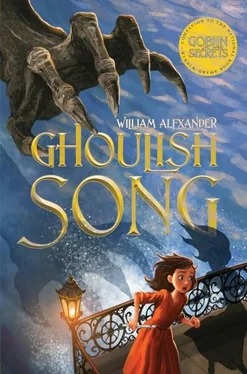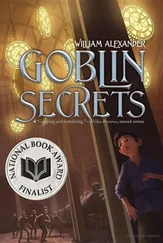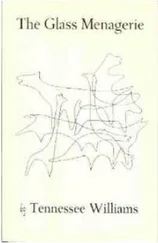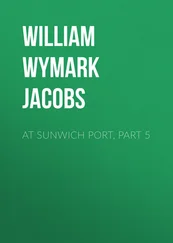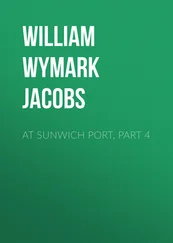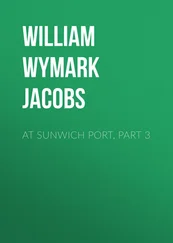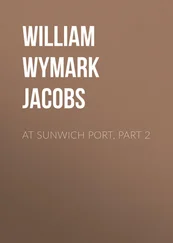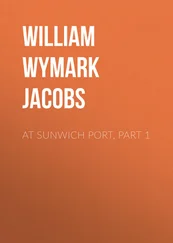She almost laughed. She also felt panicked. What she really wanted was for everyone else to laugh. They all looked so stricken and serious. Mother and Father were both such sensible people. Why would they even listen to old Boggs? Couldn’t they tell that she was still here and still breathing, still entirely alive?
The Doctor hit an especially bad note. Kaile winced. How could any of the dead rest in peace with a voice like that singing them down? Two fiddlers from the bridge had come to play and sing for Grandfather, and they had done so perfectly. Everything Kaile had felt on that day had spilled out into the shape of that music, and then the same music had tied her back together again—just as Grandfather had promised her. Now, at her own funeral, the music might just make her throw up. She wanted to leave. Maybe this was how the Doctor thought he could prevent a haunting: sing so badly that the dead were forced to leave.
Kaile was starting to think of herself as dead.
Stop it, she told herself.
“Stop it!” she told everyone else. “I’m fine. I’m right here.” She needed to explain, but she wasn’t sure how to explain.
The singing faltered and stumbled, but did not stop.
“My shadow’s in the hayloft!” she protested. “If you’ll all just wait a moment, I can try to coax her back inside. Just wait. Don’t finish the funeral. Don’t finish the song.”
The singing grew louder to drown out her voice. Practically everyone she knew in the world stood in that room, and they all ignored her.
Kaile looked down at her feet. Without a shadow it seemed as though they didn’t really touch the ground. It looked as though she didn’t really touch the world.
She looked up at Mother. Mother was singing, even though she almost never sang. She didn’t like the sound of her own voice. And Mother was grieving, actually grieving. This wasn’t a punishment, not for goblins or inspections, not for anything. This was mourning.
They really did believe that Kaile was dead.
“I’m not a ghoul,” Kaile insisted—but she said it quietly, because now she wasn’t entirely sure.
Doctor Boggs gathered up a handful of greasy ashes from a bowl, took Kaile’s arm roughly with his other hand, and smeared the ash across her forehead. He sang loud and only inches from her face. Then he pushed her through the crowd and through the public door.
No one else tried to stop him.
Doctor Boggs shut the door behind her.
Kaile heard the song and the funeral end on the other side of that door.
* * *
She went slowly around the alehouse, across the yard, and up into the hayloft. There she sat with her legs over the edge and stared at nothing. Guzzards scratched in their sawdust below and dreamed the sorts of dreams known only to guzzards.
It could have been worse, her shadow whispered nearby. It used to be worse. People used to bury suspected ghouls rather than just ignore them. They buried ghouls in three separate graves spaced far apart—one for your head, one for your heart, and a third for all the rest of you.
“Shut it,” said Kaile. She tried to wipe the ashes from her forehead. The ash stain was sticky. It smelled like they had mixed wood ashes from the oven with butter in order to make the stuff.
The stain marked her as a dead thing. She kept trying to rub it off.
“The funeral’s over,” she said. Her voice sounded flat and lifeless in her own ears. “My funeral song is over and sung. That makes it true. That changes the shape of things.”
You aren’t dead, her shadow told her. Your breathing is obvious and loud.
“Doesn’t matter,” said Kaile. “Everybody in Broken Wall knows that I’m supposed to be dead. It won’t matter to them that I’m still moving and breathing and talking. They sang my funeral.” She noticed, as though from a distance, that she was crying. She wondered how to stop.
You aren’t dead, her shadow said again, with more impatience than sympathy.
“No help from you,” said Kaile, as soon as she was able to say anything. “If you had stayed stuck to my feet, then this wouldn’t have happened. If you had just come back inside with me, then it probably wouldn’t have happened, either.”
I don’t want to be tied to your feet.
“Then why are you still here?” She heard another sob in her voice, and hated it.
The shadow’s whisper faded, sounding embarrassed and barely audible. I’ve only ever stood near you. That’s all I know how to do. That’s the only place I know where to be. I’d rather not. But I don’t know where else to go. And it’s dark outside.
“That shouldn’t much matter,” said Kaile. “You’re a shadow. You’re made out of the dark. You shouldn’t be afraid of the dark.”
I disappear in the dark, the shadow lashed out, voice rising almost above a whisper. It feels like drowning. I never know which part of me is me, or whether I’ll ever come back again. I might not come back, now that I’m not anchored to you. But shadows are darker and stronger in bright lights. If that lantern burns out, then I might disappear and be forever gone. Turn up the wick as high as it goes.
“No,” said Kaile. “If I turn up the lantern, then the oil will burn out before morning. It needs to burn low if you want it to last until sunrise.” She turned down the lantern wick. Her shadow made angry noises, but did not make any further protests.
Kaile wiped her nose, wound up the lantern base, and watched familiar animal silhouettes turn in a slow circle on the walls around them. Then she took another long look at her own shadow, which was easier to see now that Kaile had the knack of looking.
“What’s your name?” she asked her shadow. “Do you have one?”
No, the shadow said.
“I have to call you something. I could call you Shade.”
The shadow didn’t agree. She didn’t protest, either. She didn’t say anything.
Kaile curled up in the hay, away from the edge of the loft, and tried to get comfortable. She wouldn’t return to her bedroom, not tonight, not if her family had made her unwelcome, not if they wanted to keep the household free of haunting. Hopefully they wouldn’t mind having a haunted hayloft.
She closed her eyes. When she finally slept, she dreamed that she was building the Fiddleway Bridge out of bones and bread loaves.
If Shade dreamed, they were the sorts of dreams known only to shadows.
KAILE WOKE AFTER SUNRISE. Light came in through cracks in the walls. Guzzards went about their business below.
She felt like she had overslept. The sun rarely rose in the morning before she did. But she was sore, stiff, and cold from a night spent on unfamiliar and uncomfortable bedding—or else she felt stiff because she was dead, and her body had finally noticed. Maybe she would lurch around from now on, her arms and legs barely bending, the way the Snotfish did whenever he pretended to be something ghoulish.
She stood up, stretched, and paid attention to her own breathing for a while. Not dead, then—though her shadow was still separate from herself.
Shade crouched beside the lantern, a girl-shaped patch of transparent darkness. Kaile’s eyes struggled to see the shadow, even though she was looking for her.
The lantern is almost out, Shade whispered, her voice a rebuke. The oil barely lasted until morning.
“Then it’s a good thing I turned it down last night,” said Kaile. “We keep a spare jar of lamp oil in the cellar. I’ll sneak in for some breakfast and more oil. It probably won’t take much sneaking—if anyone sees me, they’ll just try not to notice me.”
Читать дальше
